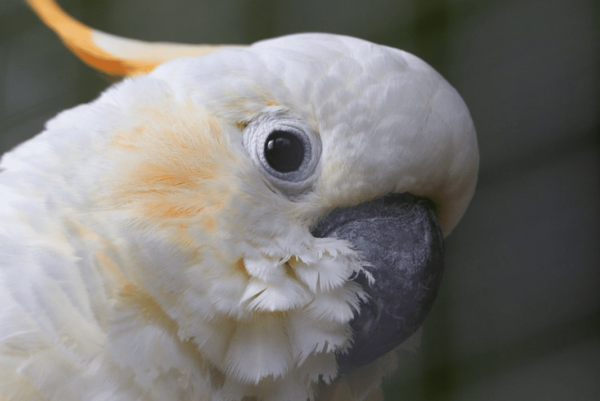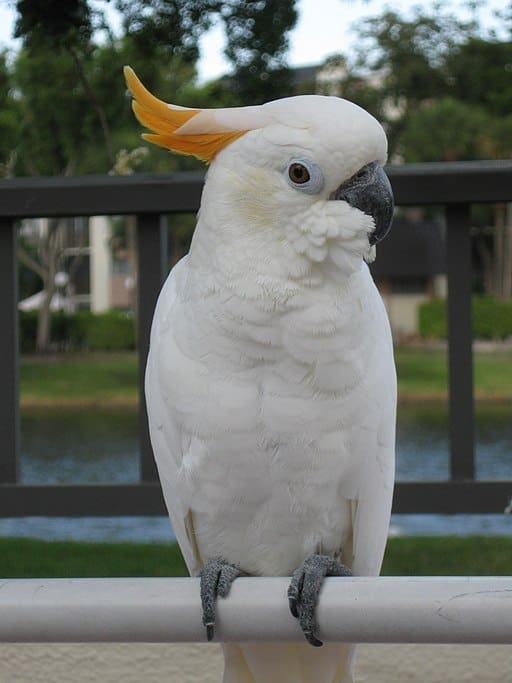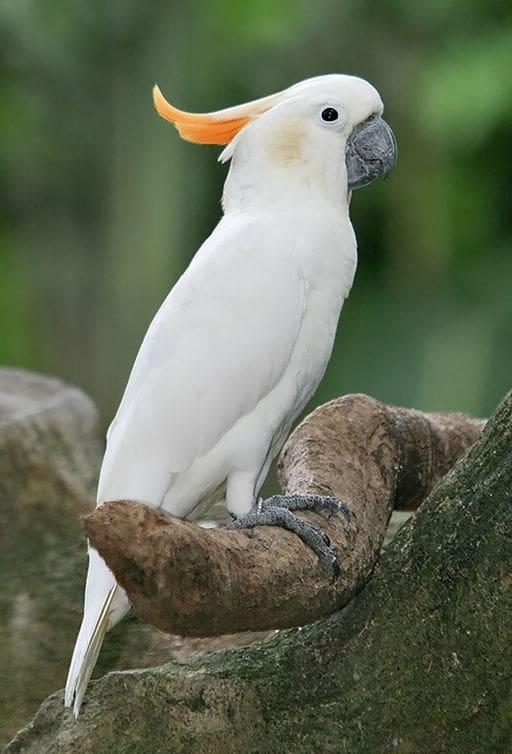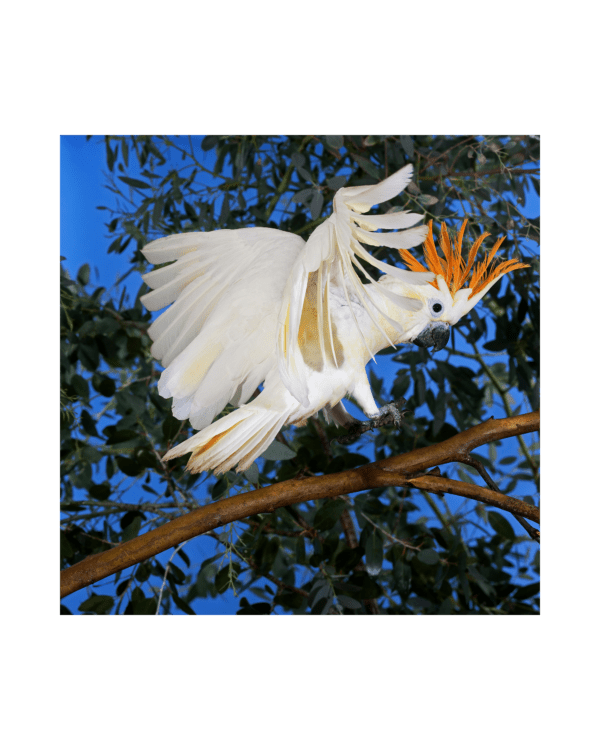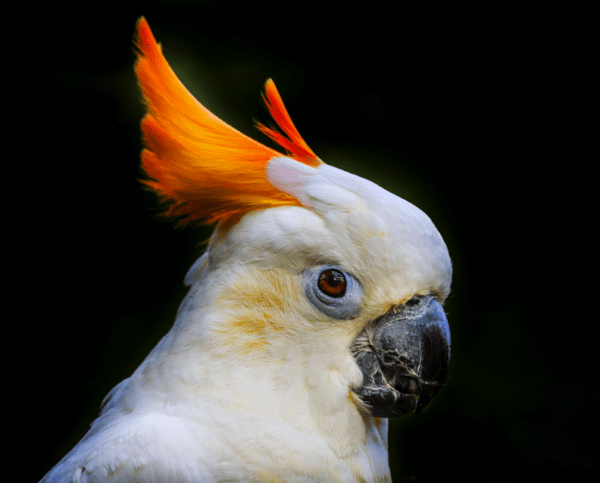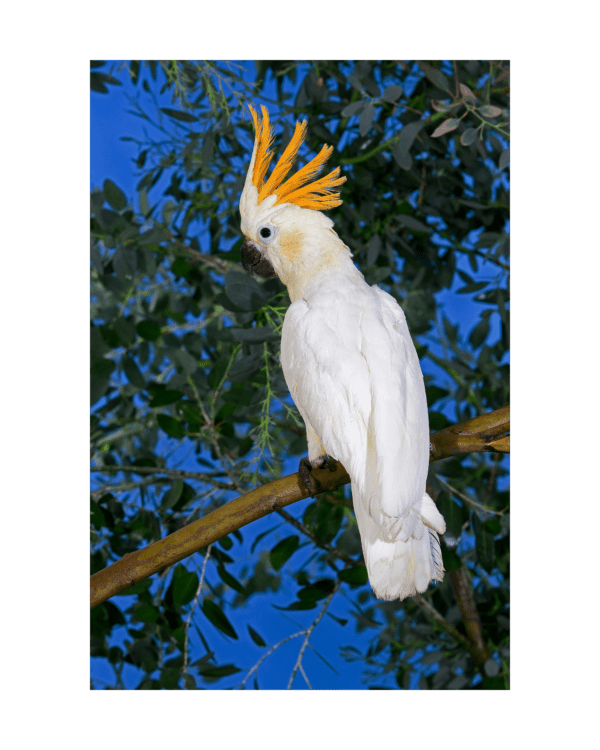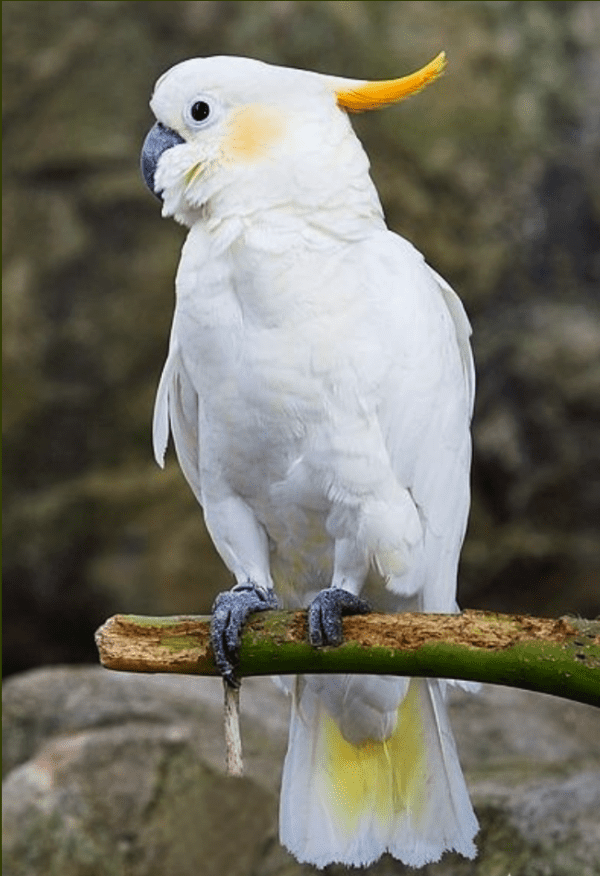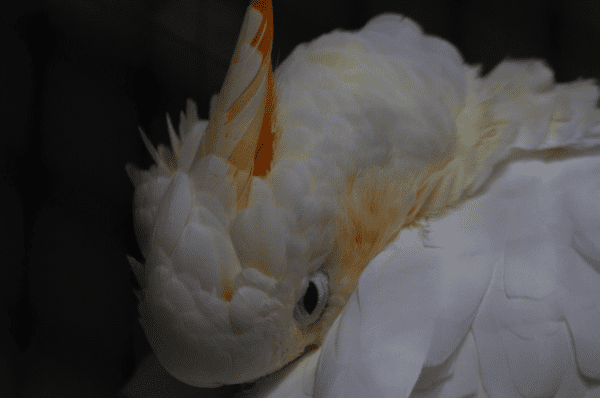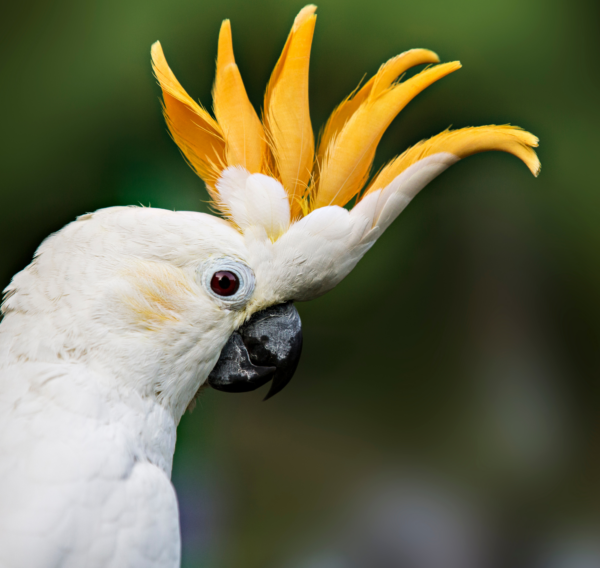![© Claire Witham [CC BY-NC 2.0] via Flickr Closeup profile of a companion Citron-crested Cockatoo](https://parrots.org/wp-content/uploads/2023/01/citron-crested-cockatoo-e1731605752795-100x100.png)
![© Saspin13 [CC BY-SA 3.0] via Wikimedia Commons A Citron-crested Cockatoo perches on a fence](https://parrots.org/wp-content/uploads/2023/01/Citron-Crested-Cockatoo-100x100.jpeg)
![© Doug Janson [CC BY-SA 3.0] via Wikimedia Commons A Citron-crested Cockatoo perches on a log](https://parrots.org/wp-content/uploads/2023/01/wpt-512px-citron-crested_cockatoo_2261-100x100.jpg)

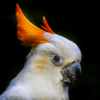
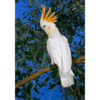
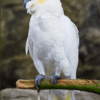
![© Claire Witham [CC BY-NC 2.0] via Flickr A companion Citron-crested Cockatoo preens itself](https://parrots.org/wp-content/uploads/2023/01/citron-crested-cockatoo--100x100.png)
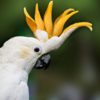
DID YOU KNOW?
The Citron-crested Cockatoo was once conspecific with the Yellow-crested Cockatoo (Cacatua sulphurea).

Cacatua

citrinocristata
Size:
33 cm (12.8 in)
Weight:
About 380 g (13.4 oz)
Subspecies including nominate:
one
Colour Adult:
Both adults all-white plumage, with crest and ear-coverts golden orange. Beak slate grey. Eye brown in male, copper in female.
Colour Juvenile:
As in adults.
Call:
Call a harsh screech, less raucous than that of the Sulphur-crested Cockatoo. Also sweeter, squeaky notes and whistles.
Citron-crested Cockatoo – AVoCet Cornell Lab Macaulay Library
More Information:
Content Sources:
CITES
BirdLife International
Cornell Lab of Ornithology/Birds of the World
Parrots of the World, Joseph Forshaw, 2006.
Parrots in Aviculture, Rosemary Low, 1992.
Psittacine Aviculture, Schubot, Clubb and Clubb, 1992.
Captive Status:
Not common.
Longevity:
40-60 yrs
Housing:
Walk-in aviary, minimum length 4.5 m (14.7 ft).
Diet:
Mix of small seeds: canary, oats, safflower; spray millet; limited sunflower seed, dry, soaked or sprouted; sprouted pulses such as mung beans, cooked butterbeans and lentils; boiled maize; green leaves such as: Swiss chard, lettuce, sowthistle, dandelion, chickweed; fresh vegetable such as: corn, carrot, celery, zucchini, green beans or peas in the pod; fruit such as: apple, pear, orange, cactus fruits and bananas; nuts such as: walnuts, hazelnuts, pecans and roasted peanuts; complete kibble.
Enrichment:
Socialization, bathing using overhead misters or misting bottles; chew toys (made of bird-safe wood and vegetable tanned leather), fir, willow, pine and elder branches, different sized perches.
Nest Box Size:
12″ x 12″ x 24″ (30.5 cm x 30.5 cm x 61 cm) or 12″ x 12″ x 36″ (30.5 cm x 30.5 cm x 91.5 cm) vertical box.
Clutch Size:
2 or 3
Fledging Age:
10-12 weeks
Hatch Weight:
—
Peak Weight:
—
Weaning Weight:
—
World Population:
800-1,320 mature individuals, decreasing.
IUCN Red List Status:
Critically Endangered
CITES Listing:
Appendix I
Threat Summary:
Over the last three generations (1978-2021), the wild population is estimated to have declined rapidly due to trapping. Forest loss on Sumba is also accelerating. Historically occurred throughout the island and was considered an agricultural pest.
Range:
Restricted to Sumba in Lesser Sunda Islands, Indonesia.
Habitat:
Seen in woodland and cultivated areas from sea level up to 500 m.
Wild Diet:
Eats seeds, berries, flowers and leaves and leaf buds. May also take cultivated maize. Also will take bananas, mangoes, papaya, figs, guavas, and other cultivated fruits.
Ecology and Behaviour:
Usually in pairs or small groups, with larger groups gathering in fruiting trees. Groups gather at dusk to roost.
Clutch and Egg Size:
2 or 3 elliptical eggs, 41.0 x 27.0 mm (1.6 x 1 in).
Breeding Season:
September-May. Nests are in tree cavities with specific requirements such as a chink in a trunk or branch or a pre-existing cavity made by another species, often in dead, snagged or rotting trees.
